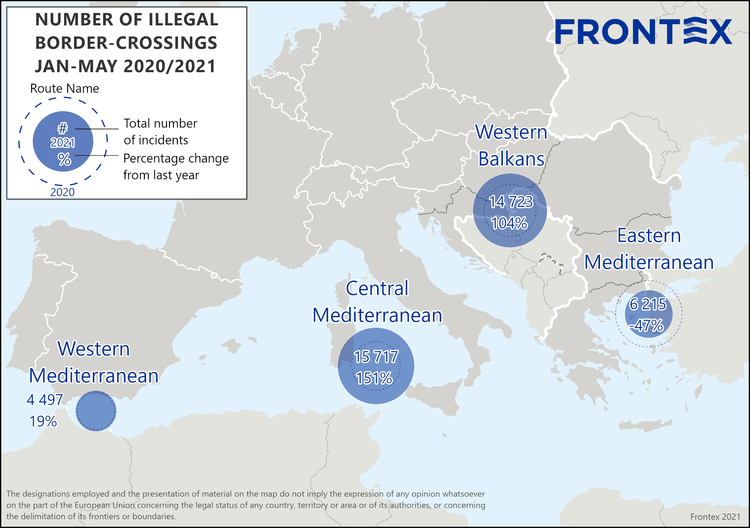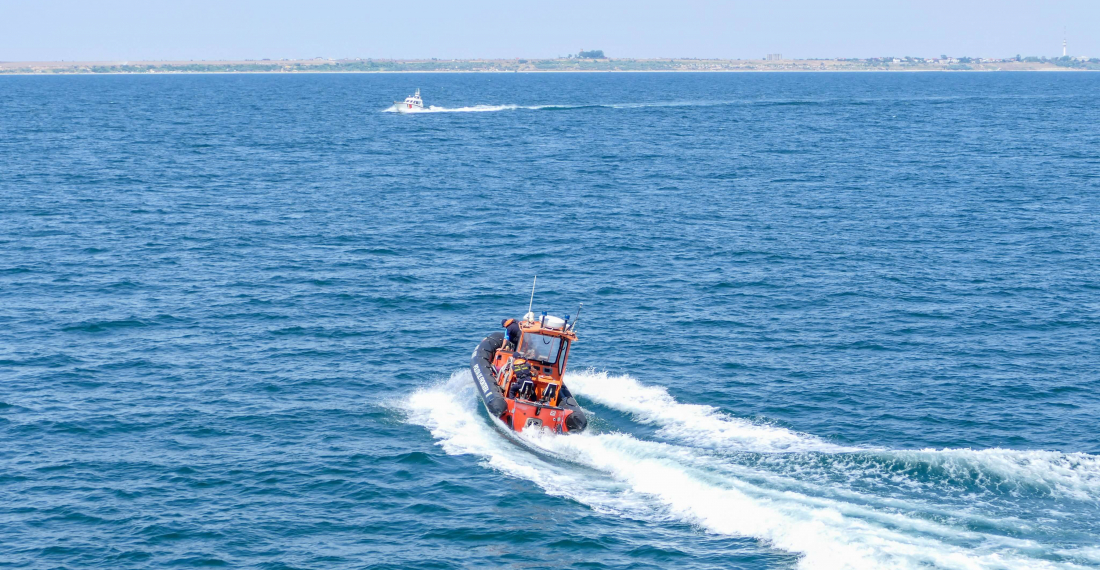The European Border and Coast Guard Agency, Frontex, has seen an increase in the number of people trying to enter the European Union illegally. Furthermore, in a report published on Monday (21 June), the European Court of Auditors said Frontex was not sufficiently helping the bloc to curb illegal migration and cross-border crime.
Last year, there were worldwide travel restrictions due to the COVID-19 pandemic. The number of asylum seekers was historically low. Now that restrictions are being partially lifted around the world, travel movements are increasing significantly. In the first five months of 2021, a total of more than 47,000 migrants and refugees were counted; 47 per cent more than in the whole of 2020, reports Frontex.
The route from North Africa across the central Mediterranean is most popular with migrants from Tunisia and Bangladesh, says the EU agency. Between January and May, the number of illegal border crossings doubled to 15,700 compared to the same period in 2020.

On the Western Sea Route near Spain, Frontex is also seeing more irregular migrants, mainly from Algeria and Morocco. In the first five months of the year, there were more than 4550. That is 21 per cent more than in the same period last year.






